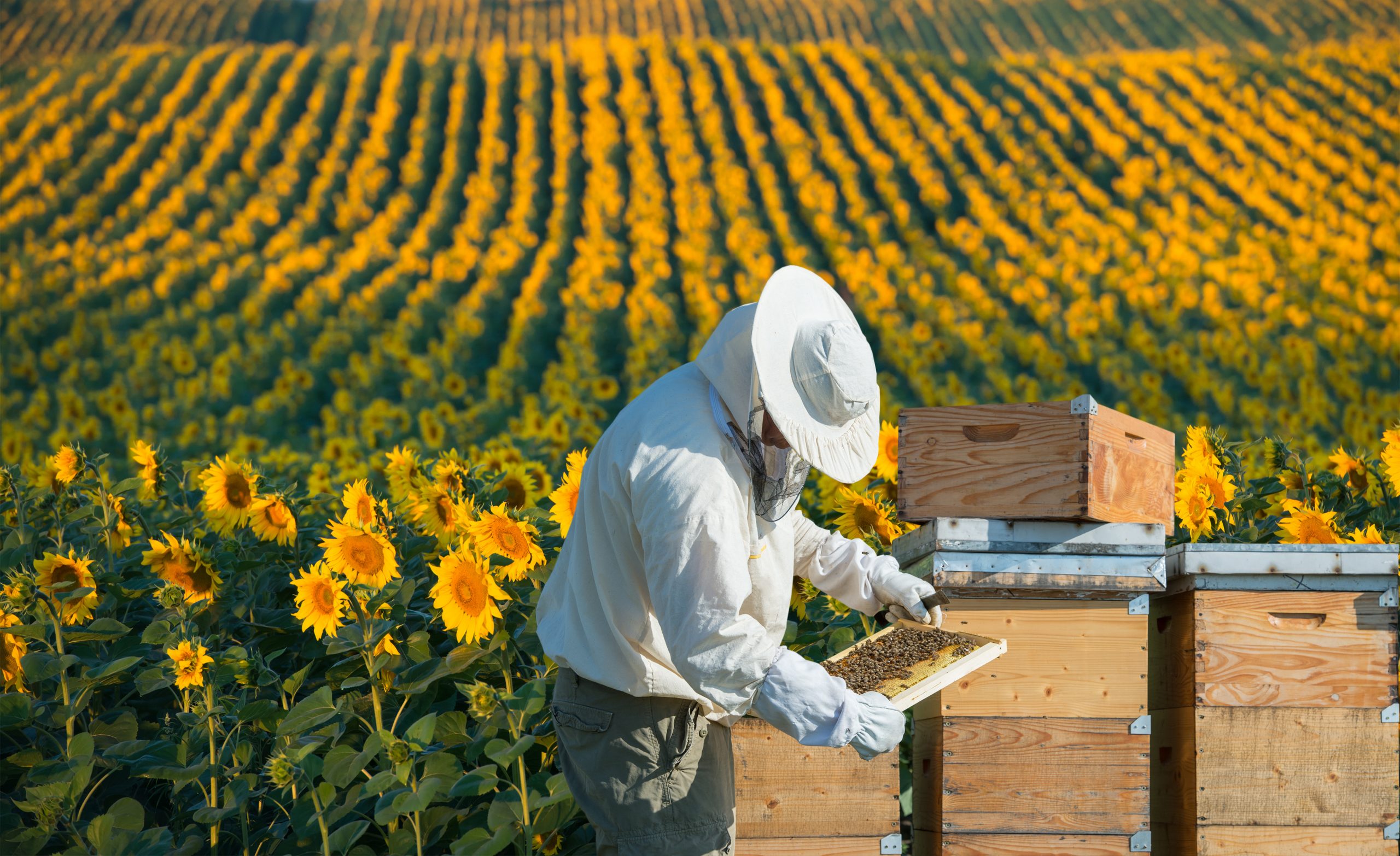Meet a Honeybee Whisperer and Educator
July 25, 2016
Bee Colony Collapse, Honey Bees, Honey Industry
It takes a tremendous dedication and understanding of craft to work as a beekeeper, especially at the rate Carmen Battavio tends to his charges, which at this point has grown to about 50 hives across ten properties in Chester County Pennsylvania. While a plumber by trade, the ten-year veteran beekeeper is working to inform his community of the importance of honeybees and what threats they face in the world today by sharing his knowledge of bees, which ten years ago were merely the reasons Battavio’s vegetable garden was suffering due to their disappearing. And as many and Battavio have discovered the hard way, their disappearance is largely believed to be caused by colony collapse disorder (CCD) and its many other factors—hence why Battavio has chosen to bolster honeybees by raising them himself.
To understand honeybees and how to protect them enough that they could thrive, Battavio started taking classes through Penn State University’s agricultural department, and eventually became certified by the USDA. He began with only three hives in 2006 and immediately noticed an increase in his garden’s yield: “Vegetables went wild. Everything went wild…All the neighbors were stating how they had good pollination, how they saw bees they hadn’t seen before, so it pretty much showed it was probably the colony collapse that was giving people problems with gardens.”
As Battavio learned, honeybees pollinate roughly 75 percent of American crops at a value of $15 billion. “It’s a very, very important part of our food chain,” he says. Without the honeybee, the quantity of crops would be decimated, and people would have to rely on GMOs and be forced to adapt to changing harvest patterns with inorganic supplements. With such futures always possible, Battavio provides daily maintenance and care for his honeybees, checking the ones off his property once a week or every other week, depending on each colony’s health and cleanliness—he cleans the structures, checks for mites, checks the honey, and inspects each queen.
While also a well-trained honeybee “whisperer,” Battavio does spread the word about the significance of the honeybee through area talks, with Battavio reportedly wary that lack of consideration for the environment could result in a human version of CCD. “Bees are extremely sensitive to environmental changes like we are, but because they’re such a small insect, they are affected much more drastically.” He makes it clear people must be aware of our impact on bees to prevent further damage to them and the environment, such as limiting pesticide use in our backyards and planting bee-friendly plants. “We certainly have to be more diligent in terms of education and development of stuff that farmers can use that’s a little more natural, more organic.”


.jpg)



